July 25, 2024
Resilience, mitigation, adaptation, palliative care
In a November 2023 report, the UN Environment Programme estimated the global adaptation funding gap at between $194-366bn per year. (FT)
Companies are at events and looking at costs of dealing with climate change. At the same time opposing measures above the level of the company that would reduce that cost burden by reducing greenhouse gas emissions.
It is equivalent of businesses opposing the establishment of a fire station on their street and fire related building codes, but each company buying their own fire fighting infrastructure.
The World Economic Forum is calling it "heatflation" in their attempt to highlight that it is both stupid and inevitable.
The logic of capitalism results in this tragedy and the world economies have adopted it without hesitation.
We see things like this everywhere. There are expos on dealing with extreme heat through purchasing gadgets (that use energy produced by burning fossil fuels), silicon valley tout AI as a solution to climate change while using so much new energy that coal fired plants have to start-up again, companies move from California and the north east of the USA to climate counter-resilient Texas, and Alberta calls on the federal government to give it money for forest fire damage while giving massive subsidies to massively profitable and unregulated oil and gas.
The confused hand waving coming from elements of the liberal management class is hard to watch. Serious climate research organizations are wondering out loud why the USA government is allowing companies and people to migrate to areas of the country that are going to be unbearable for the next generation. These same organizations wonder why the world cannot address climate change through market mechanisms.
Without a clear understanding of the mechanisms of capitalism, how do we expect to address any of the issues resulting from this system?
In some quarters of the corporate investment community they tell you the answer: they have no intention of investing in addressing climate change. Just as they have no intention of addressing any issue that will not produce profit. Outside of window dressing for mitigating negative press of exposing too much uncaring for the future of the species, there is no drive to transition.
And, with the Olympics about to start, we can point to the ways that athletes are being forced to deal with extreme heat on top of trying to perform well.
Once-temperate Paris has warmed 1.8C since it last hosted the Olympics in 1924, according to a recent report that also details a rise in “scorching days” and a 2,100% increase in tropical nights. The same stone buildings, zinc rooftops and narrow streets that make Paris so charming can also make it swelter. (Bloomberg)
That's right, who would have thought that Paris is not well designed to deal with increasing heat of the summer? Basically anyone who has been to Europe in the summer.
Heat stroke is a real threat to the health of athletes in these games.
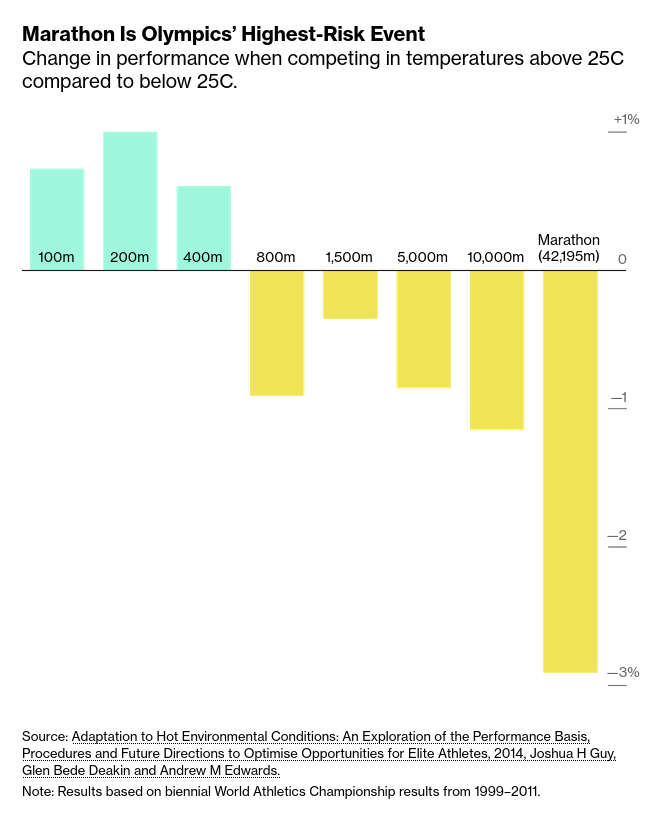
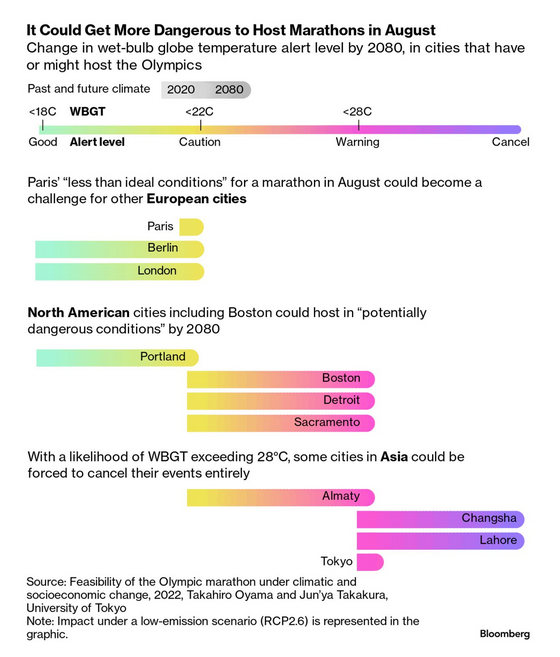
Global Hunger
Changing weather patterns and a global economy hit by all the bad things has pushed-up food prices driving many people into food insecurity.
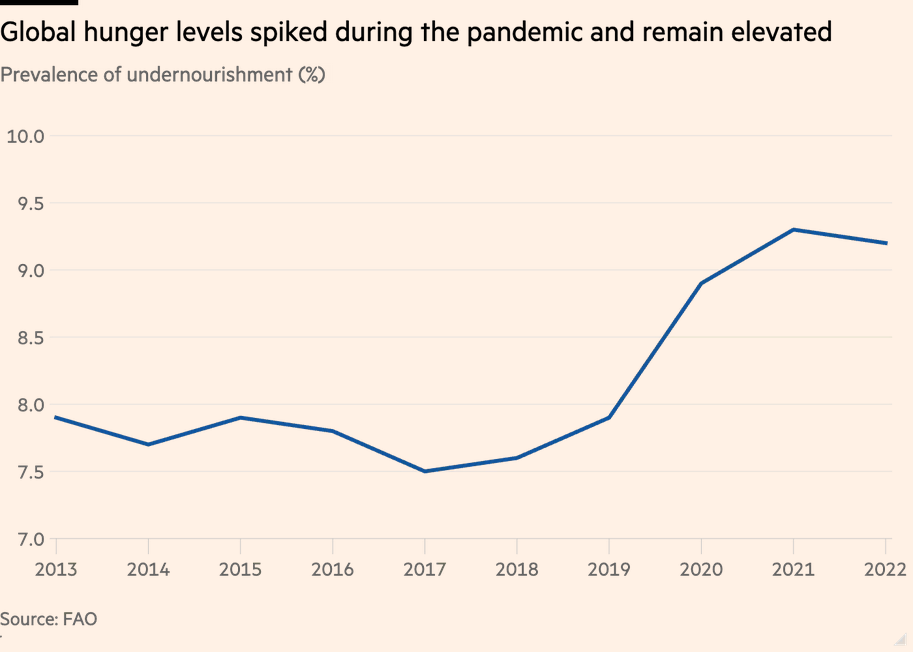
The global hunger rating shows the precariousness of all the "progress" that was made over the previous decades on reducing hunger. It was not, as it turns out, permanent decreases in global poverty and permanent increases in food availability.
As we have discussed previously, the Green Revolution of using ever increasing amounts of oil to produce food for the world's people and the reliance on China to bring its population out of poverty and dragging down the global poverty index, have run into a wall.
Overall, a higher portion of people are undernourished today than 10 years ago, according to UN estimates. This leaves the world on course to have a projected 582mn people chronically undernourished by the end of the decade.
There is no resilience in the economic programs that set the foundation for our food system. Small shocks, of which there are an ever increasing number, result in a ratchet that moves in the wrong direction.
The main issue highlighted in the UNFAO report is that the "donor countries" need to spend more on support for "farmers to adapt to climate change."
There is no adaptation to the kinds of impacts climate change is having on poor, small scale farmers.
With only three per cent of climate financing going to agriculture and food systems, this is unlikely to change any time soon.
Canada's economy
While the economy of the USA is being dragged down by an overly aggressive central bank, Canada's economy is predicted to hit some net income growth. At least across equities in the TSX. Mostly driven by the loosening of central bank rates.
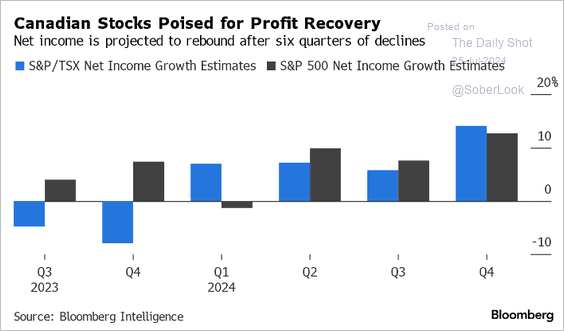
This might not translate into actual growth in the real economy quickly, unfortunately.
According to a new survey from the Canadian Federation of Independent Business, just 13% of Canadian small businesses plan to increase their head count over the next three or four months — the smallest share since January 2021 (Desjardins)
The worker in the USA is having a hard time and it is a serious drag on the economy, never mind the living standards across that country.
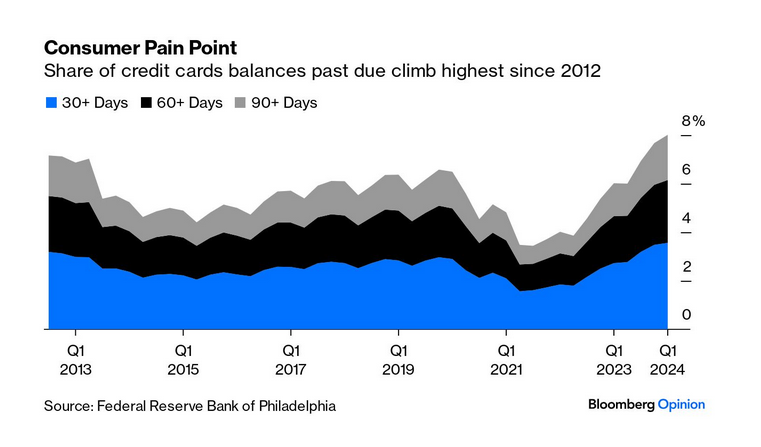
Exoplanet
NASA’s Webb takes a shot of a Cold Exoplanet that is only 12 light-years away.
